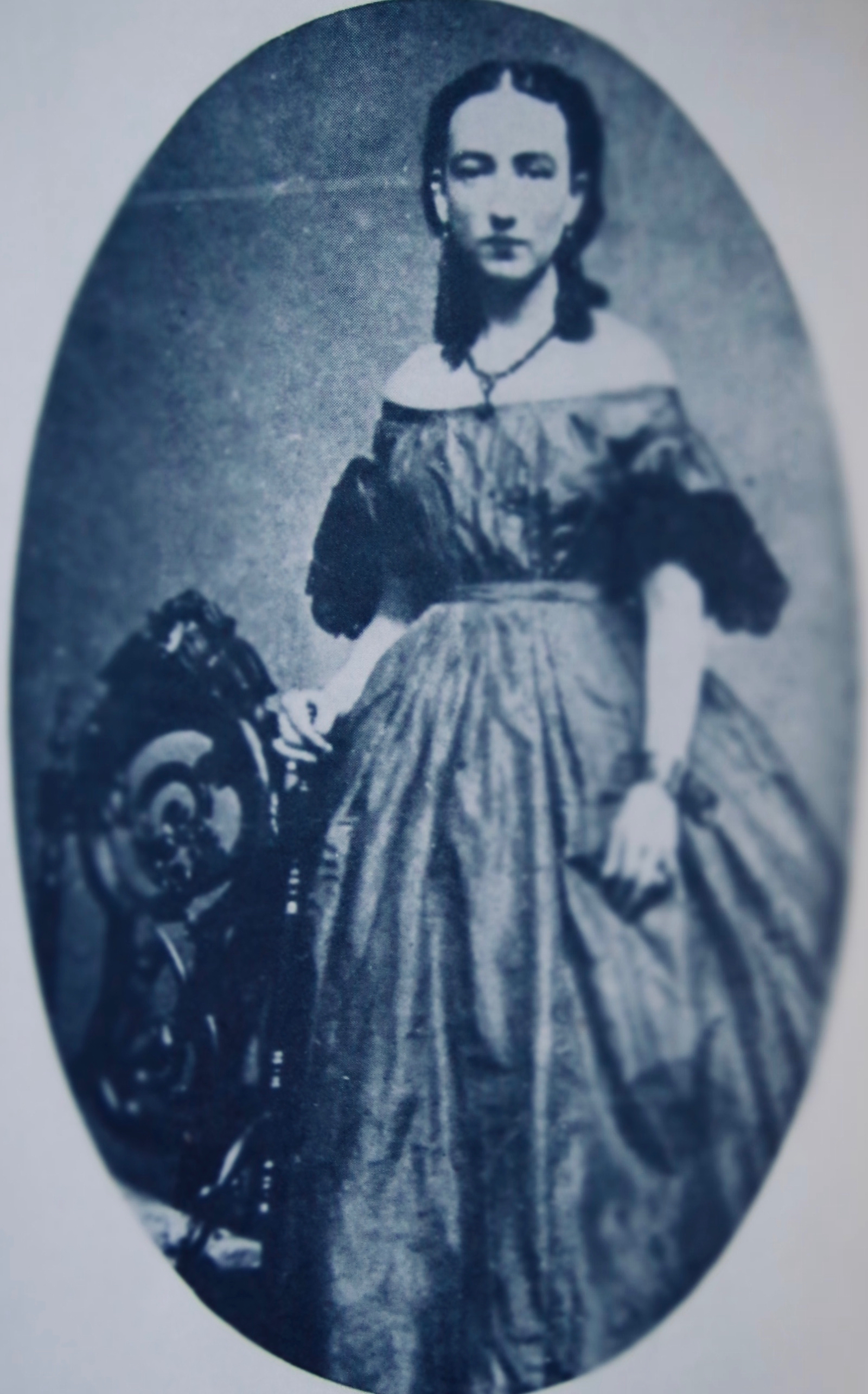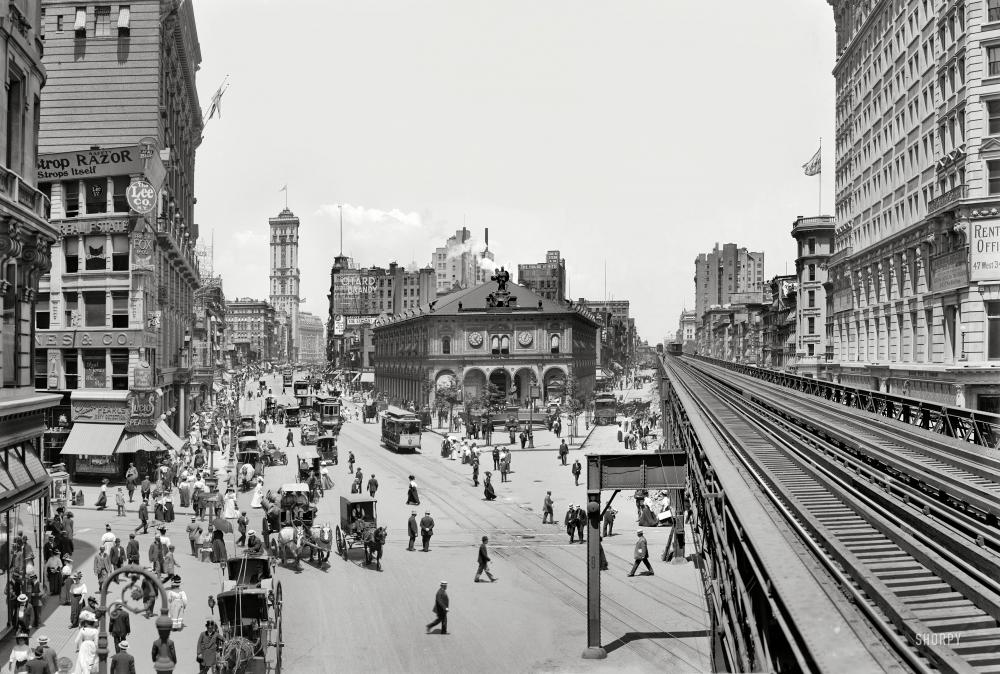THE LADY VANISHES -A Gilded Age Mystery
“People who live alone, and die alone, rarely do so voluntary” Justice Joseph A Cox
Ida Mayfield arrived in Manhattan early spring of 1857.
A strikingly pretty Southern belle, delicate, with lush mahogany curls and sultry pale blue eyes, she was the 19-year old daughter of wealthy sugar baron Henry Mayfield from New Orleans, and from her mother’s side, a descendant from English Earls. Ida had come to New York determined to improve herself, which meant finding a rich husband.
Ida was charming and smart, her fine upbringing was apparent which made her a welcome guest at parties, but somehow invitations to the grand balls just didn't seem to materialize for her. The gilded gates of New York's high society were fiercely guarded by the matriarchs of the Old Money families, and without proper introductions meeting a wealthy bachelor was next to impossible.
Ambitious Ida wasn't going to settle for just any kind of suitor; she was intent to make it big.
Time was running out; the social season was short. This year's It-girl was next years leftover so Ida, an avid reader of gossip pages, devised a rather unusual plan. She sent a personal note, on fine paper nonetheless, to one of New York's most prominent businessman, a name she kept seeing in the newspapers, a rich fella named Benjamin Wood.
Mr. Wood, a married Bon Vivant and notorious for his love of beautiful ladies, expensive cigars and gambling was the owner of the influential Daily News (not the current) newspaper and brother of the powerful mayor of New York City, Fernando Wood. Both Benjamin and Fernando were Kentucky born Quakers and considered Copperheads, staunch supporters of the antebellum South and outspoken pro-Slavery.
Fernando, a shrewd millionaire businessman himself often sparred with Boss Tweed over Tammany Hall who considered him the most corrupt politician of all time. A rich statement considering the source.
The note read:
May 28, 1857, Mr. Wood—Sir
Having heard of you often, I venture to address you from hearing a young lady, one of your ‘former loves,’ speak of you. She says you are fond of ‘new faces.’ I fancy that as I am new in the city and in ‘affairs de coeur’ that I might contract an agreeable intimacy with you; of as long duration as you saw fit to have it. I believe that I am not extremely bad looking, nor disagreeable. Perhaps not quite as handsome as the lady with you at present, but I know a little more, and there is an old saying—‘Knowledge is power.’ If you would wish an interview address a letter to No. Broadway P O New York stating what time we may meet.
Intrigued by Ida’s assertiveness agreed to meet with her discreetly in a hotel outside Philadelphia. Wood was immediately smitten with her. Ida was gorgeous and fun. Benjamin set her up in an apartment in Manhattan and discreetly supported her. They were a striking pair: Ida slender, poised and fair; Benjamin intense, tall, lumbering.
It isn't clear how Ida explained her extended stay in New York to her folks back home in New Orleans. They were a secret couple for almost ten years until Benjamin's wife passed away. He married Ida within days. At that point, there was a little daughter, clearly born out of wedlock but her parents weren't that forthcoming about her actual birthday to avoid scandal.
Ida had finally arrived on top. Benjamin was a member of congress and New York State Senate. He rented a large luxurious apartment in the grand Fifth Avenue Hotel for his new family. Ida’s days were full of luxuries and splendid parties; life was good, really good. Ida's younger sister Mary had come to live with them. Ben was a good husband and doting father, a fierce protector of his family. The Daily News had grown to the biggest paper in America and was circulated widely.
But there was a dark cloud overshadowing the relationship. Benjamin was a notorious gambler and infuriated his wife by risking too much and losing large sums. Ida feared Benjamin gambling the paper away and made him sign the Daily News over to her. They made a deal: Benjamin was allowed to gamble a little if he split his winnings with Ida, but if he lost had to absorb all losses himself. Benjamin spend lavishly, Ida saved.
Benjamin died after a short illness in1900.
When his estate was settled after his death, it was observed that he practically died without fortune and property, because, you guessed it, Ida had it all.
The widow Wood attempted to run the Daily News, but her dismissal of most of the board and some popular writers made her immensely unpopular. She sold the Daily News for a princely sum of $300,000 shortly after that.
FEAR AND PARANOIA
Without Benjamin on her side, Ida became insecure and easily flustered. She didn’t trust banks or Benjamin's accountants. 1906 brought a bank crisis of titanic proportions to New York and stories of ruined fortunes were all over the papers and rattled her nerves.
One morning, much to the dismay of her accountants, Ida marched into her bank and demanded to close all accounts and withdraw all funds in cash. She threatened to use her social status to tell anyone that the bank was insolvent if they would refuse.
Ida walked out of the branch with over 1 Million dollars (equivalent to 27 Million adjusted for inflation) in $500 and $1000 denominations stuffed into her canvas bags - and disappeared.
THE LADY VANISHES
The new owner of the Daily News ran into legal difficulties and had to stand trial, Ida Mayfield Wood was called to the witness stand but she was nowhere to be found. She and her daughter had abandoned their luxurious apartment at the grand Fifth Avenue Hotel and had disappeared in 1906. Those were turbulent times, it was assumed the former fixture of high society had returned home to Louisiana or was traveling in Europe. The Daily News folded in 1906.
AN UNEXPECTED TURN
Fast forward 25 years to November 1930 to a seedy, threadbare hotel on Herald Square
A panic stricken hotel guest tried to summon one of the maids to help a frail very old woman in distress. The geriatric resident of room 505 was dying. The maid had worked at the hotel for decades but never been inside this particular hotel room. She knew the small suite was rented to a hostile and distrustful old miser and her sister; nobody was allowed in, nobody ever came out.
The hotel manager summoned a doctor who attended to the emaciated woman but help came too late. The state of neglect and filth in the room was shocking.
The suite had not been cleaned in decades and was filled with discarded garbage, old newspapers, several steamer trunks and all sorts of noxious detritus. The stench was overwhelming.
But more shocking was the state of the second resident, also in her 90s and in terrible health and mental state. The remaining old lady, dressed in a filthy gown, hadn’t bathed in years, was mostly blind and hard of hearing and reluctantly told the attending that her name was Ida Mayfield Wood, the sister in law of mayor Fernando Wood. The woman was clearly deranged and delusional. She requested her attorney to be summoned to arrange her younger sisters Mary’s burial but her request was initially dismissed as the rantings of a senile mind.
Herald Square 1903
An elevator attendant, one of the few long term employees confirmed that every day he had taken food to the sisters, they had send him out for a nickel worth of crackers, evaporated milk and sometimes fish, which lacking a stove they ate raw. Ida had moved into the Herald Square Hotel under an assumed name with her sister and her daughter in 1906. The elevator attendant recalled Ida’s daughter had passed away years ago because Ida had fretted over the cost of a doctor too long.
When the call to the attorney Ida had requested was finally placed, his son, also a lawyer, picked up. His father had long retired as a judge but could still vividly remember the Woods family and asked his son to check in on the welfare of Ida.
When the young attorney arrived at the hotel, another shocking discovery had been made. Ida’s fortune was discovered barely hidden in her filthy room. Thick bundles of rolled up cash, exquisit diamonds necklaces stuffed in a cereal box, valuable railroad stocks she had never cashed the dividends in years littered the suite. Ida had been pinned banknotes inside her nightgown
The press started to take notice of the case of the filthy rich hoarder of the Herald Square Hotel and the story became an absolute sensation. Since Ida stubbornly refused to leave her room, guards were posted outside her door to protect her and her fortune.
In a city in the most dire straits of depression, Ida Mayfield Wood was a sensation and again the talk of the town.
Ida was in failing health. In her clear moments she regaled with glittering tales of balls, dinners and hosting Abraham Lincoln. Ida died of pneumonia March 12th 1932 age 93. Only a handful of people attended her memorial service at St. Frances of Assisi and her burial at Calvary Cemetery in Queens
AN AVALANCHE OF RELATIVES COMES FORWARD
Ida had left a will but had named her sister and daughter as sole beneficiaries, both of whom she had survived. A court appointed officer was tasked with identifying the next of kin.
All in all over 1,200 people made claims to Ida’s vast fortune that seemed to grow every day as her estate was being inventoried. After selling the Gilded Age furnishings and art works from her husbands enormous apartment at the Fifth Avenue Hotel Ida had moved in with 57 huge steamer trunks, most of which had collected dust in the Herald Square hotels basement and a few more in a warehouse. The trunks contained very fine ball gowns, priceless lace and furs, expensive soaps and fineries.
Finding Ida’s heir proofed very problematic. All attempts to connect her to any New Orleans Mayfields seemed futile although several people named Mayfield claimed to be close relations and even brought some geriatric plantation slaves from Louisiana to New York as witnesses but pressed on further details by the court the freed slaves contradicted themselves and were dismissed.
It started to become clear that there was no sugar plantation owner who had send his teenage daughter to New York. None of Ida’s vivid stories seemed to check out.
Paranoid but sentimental, Ida had hidden a small booklet with encrypted entries. It took months of research to decode the rosetta stone of Ida. Eventually her true story emerged and her real family was traced to Massachusetts, where she had dutifully send money for the funerals of her father and young brother who died in a drowning accident. Ida was not Southern at all and was born Ellen Walsh to impoverished Irish parents. Her father was a day laborer from Dublin who had moved the family to America but a better life eluded them and they struggled desperately to survive.
At 15 years old Ellen ran away from home and made her way to New York, where she transformed herself into Ida Mayfield, darling Southern debutante.
One last mystery was Ida and Ben’s daughter, which turned out to be not Ida’s biological daughter at all but another sister. Her fortune was distributed to a group of unsuspecting distant family members in Ireland who couldn’t believe their luck.



